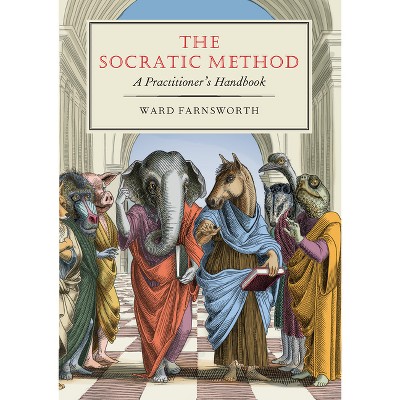About this item
Highlights
- A book of deep and practical wisdom, and uncommon common sense, by one of the nation's most eminent educators.
- Author(s): F Washington Jarvis
- 344 Pages
- Philosophy, Ethics & Moral Philosophy
Description
About the Book
A book of "uncommon common sense" for young people, by someone who has worked with them for 35 years. F. Washington ("Tony") Jarvis is one of the nation's most eminent educators. His approach is anecdotal. "Teenagers ... are gripped by the story of how real people cope with real situations. They are interested when you share with them the concrete realities of your own life and experience, and they are almost always willing to listen to adults who actually believe in something, who actually stand for something." Jarvis's addresses, reprinted from his school's publications, have long enjoyed an "underground" circulation among young people--and their parents and grandparents. Now his "top hits" have been brought together for wider circulation. The author never talks down to his audience. He knows that--appearances to the contrary--students are asking the deepest questions, questions about whether life has meaning and purpose. The first part of the book deals with these questions. He also knows that teenagers often find themselves caught in situations where they have to make tough decisions, and are willing, even eager, to know how others have coped in similar situations. The second part of the book focuses on "Values to Live By."--Publisher descriptionBook Synopsis
A book of deep and practical wisdom, and uncommon common sense, by one of the nation's most eminent educators. F. Washington Jarvis was headmaster of Boston's Roxbury Latin School, the oldest school in continuous operation in North America. This book, winner of the 2001 Christopher Award, collects Jarvis's addresses, reprinted from his school's publications.
His approach is anecdotal. "If it is true that a picture is worth a thousand words, it is ten times as true when you are speaking to young teenagers. They are gripped by the story of how real people cope with real situations. They are interested when you share with them the concrete realities of your own life and experience, and they are almost always willing to listen to adults who actually believe in something, who actually stand for something."
The author never talks down to his audience. He knows that students are asking the deepest questions, questions about whether life has meaning and purpose. He also knows that teenagers often find themselves caught by surprise in situations where they have to make tough decisions. And he believes that they are willing, even eager, to know how others have coped in similar situations.








